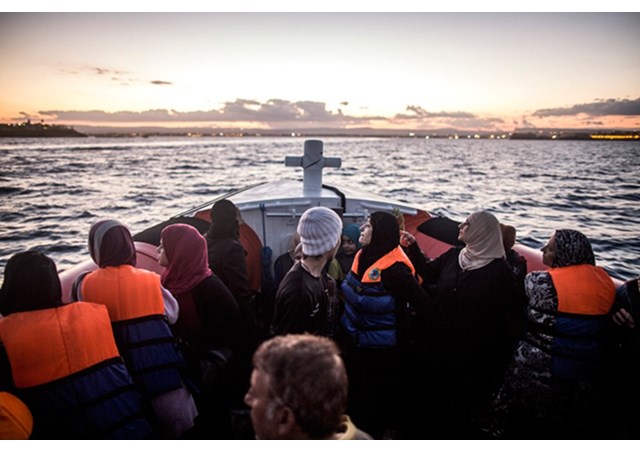
Golden Dove for Peace Prize to Lampedusa fishermen

(Vatican Radio) The fisherman of Lampedusa, thanks to whom thousands of refugees
have been brought safely to shore after perilous journeys in search of hope, are the
recipients on Thursday of the prestigious “Golden Dove for Peace Prize”.
The ceremony on July 3, sees the award going to three journalists, who during the
course of the year have shone the spotlight on current conflict and suffering, as
well as to the fishermen and sailors who have rescued countless men, women and children
who risk their lives in unseaworthy boats as they near the European coast in search
of a future.
The prize, awarded by the Italian Institute for Disarmament (Archivio Disarmo), goes each year to individuals – or as in this year’s case groups of individuals – who make a tangible contribution to peace and to the upholding of human rights and dignity.
Speaking to Vatican Radio’s Linda Bordoni, the President of the Archivio Disarmo, Professor Fabrizio Battistelli, explains why the choice this year has fallen on the fishermen of Lampedusa…
Listen to the interview…
Battistelli says many people have probably have heard of the small Island of Lampedusa that is located in the Channel of Sicily because of news reports. It’s in an area where many migrants, trying to reach the Italian coast, find themselves in need of rescue as the old and overcrowded boats on which they travel flounder and often sink.
He says that sometimes the fishermen “succeed in saving them; sometimes all they can do is recuperate their bodies…”
Battistelli explains that the aim of the Golden Dove for Peace Prize is to recognize the work of journalists who provide “good, honest and independent information about social and political issues in an international perspective”.
But – he points out – there is also a section of the prize that is dedicated to “political or cultural personalities who acted during the course of the year in order make peace something that can be reached”.
In this case – he said – “we didn’t give the prize to well-known political representatives like has happened in the past. For instance – he says - years ago we gave the prize to Mr. Hume in Ireland, just one year before he received the Nobel Prize; we have given the Prize to many important representatives in the Middle East, in Eastern Europe, in Latin America, in developing countries and so on”.
“This time we decided to give the prize to the sailors and the fishermen of Lampedusa because they make peace in a different way: defending human rights and showing a high feeling of solidarity with other people” he said.
Battistelli says he believes that not only political authorities should recognize the necessity of peace and the defense of human rights, but so should ordinary people: "the man on the street – in this case the man in the sea! – can give a contribution to peace. That is what the Lampedusa fishermen did” he said.
Battistelli also speaks about his Institute’s “Three steps for peace” appeal which was also consigned to Pope Francis. He explains the appeal is for the prevention of nuclear war. He says it was originally issued by the International Red Cross to draw the attention of public opinion towards the fact that “nuclear war cannot be won by anyone because there are no means of restoring environmental and biological situations after the use of nuclear weapons”.
The second step is the request for new legislation regarding control on arms production and export on behalf of European countries. He says new laws to regulate this issue need to be more restrictive.
Battisttelli also points out that we need more severe laws regulating the export of arms and highlights the fact that many European countries, including Italy, France, Great Britain and Germany are big exporters of armaments “not only to developed countries but also to developing countries” he said.
The third step – he says – is the need for a European humanitarian relief plan
in the Mediterranean Sea. Battistelli says this is not and must not be a solely Italian
problem: it is clearly a European problem “if you don’t think of Europe only as a
geographical expression or a place where agreements on monetary and economic issues
are made”. He says European leaders must be engaged also in politics of peace and
international cooperation. Europe must put the problem of migration on its agenda
and it must promulgate appropriate laws also concerning humanitarian relief for migrants
who “too often risk their lives, and sometimes lose them…”
| All the contents on this site are copyrighted ©. |


